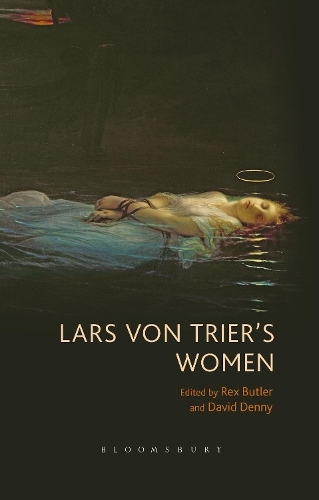
Lars von Trier's Women
(Hardback)
Available Formats
Publishing Details
Lars von Trier's Women
By (Author) Dr Rex Butler
Edited by David Denny
Bloomsbury Publishing PLC
Bloomsbury Academic USA
17th November 2016
United States
Classifications
Tertiary Education
Non Fiction
Gender studies: women and girls
Feminism and feminist theory
791.430233092
Physical Properties
Hardback
272
Width 152mm, Height 229mm
535g
Description
The Danish director Lars von Trier is undoubtedly one of the world's most important and controversial filmmakers, and arguably so because of the depiction of women in his films. He has been criticized for subjecting his female characters to unacceptable levels of violence or reducing them to masochistic self-abnegation, as with Bess in Breaking the Waves, She in Antichrist and Joe in Nymphomaniac. At other times, it is the women in his films who are dominant or break out in violence, as in his adaptation of Euripides' Medea, the conclusion of Dogville and perhaps throughout Nymphomaniac. Lars von Trier's Women confronts these dichotomies head on. Editors Rex Butler and David Denny do not take a position either for or against von Trier, but rather consider how both attitudes fall short of the real difficulty of his films, which may simply not conform to any kind of feminist or indeed anti-feminist politics as they are currently configured. Using Lacanian psychoanalysis and acknowledging the work of prior scholars on the films, Lars von Trier's Women reveals hidden resources for a renewed feminist politics and social practice.
Reviews
Lars von Triers Women has the considerable merit of offering a comprehensive look at the directors work, embracing his cinematic opus in its entirety, including his earliest films, and granting his more recent ones, namely Melancholia, Antichrist and the Nymphomaniac dilogy, scrupulous attention. * Alphaville: Journal of Film and Screen Media *
Lars von Trier's Women is much more than a collection of essays it is a very powerful critical project going right to the heart of the oeuvre of one of the greatest and most intriguing contemporary directors. This heart concerns not simply von Triers women, but with them and beyond them the question and the dimension of a genuine act at work in von Triers art. The singularity of von Triers opus works as an extremely productive trigger of the essays written by some of the most significant authors in contemporary theory. Lars von Trier's Women is a magnificent cocktail of cinema, philosophy, psychoanalysis and film theory. * Alenka Zupancic, Professor at the Research Center of the Slovene Academy of Science, Ljubljana, Slovenia *
Theres a good deal more than what meets the eye with Lars von Trier. His detractors can hardly get beyond his deliberate provocations. But if one can do so and this collection certainly does one discovers that von Trier offers us a remarkable oeuvre to explore some of the most daunting issues that confront us today. This current collection focuses on the representation of women in his cinema. Yes, von Trier brings us to the brink of what is deemed tasteful, appropriate, and even ethical in his representations. But as the various contributors show, far from blindly recycling misogynist views of women, the Danish filmmaker compels us to ask some deeply troubling questions about our own psychic failings, investments, projections and biases. Far from indulging gendered identifications or the pleasure economy, von Triers characterization of women induces an unrelenting unease in his viewers. Rather than rushing to condemn or judge him, the essays in this volume invite readers to dwell in and reflect on that disquietude. * John Caruana, Associate Professor, Department of Philosophy, Ryerson University, Canada *
Author Bio
Rex Butler is Professor of Art History at the University of Queensland, Australia. He is the author of Jean Baudrillard: The Defence of the Real (1999), Slavoj iek: Live Theory (2005), Borges Short Stories (2010), The iek Dictionary (2014), and Deleuze and Guattaris What is Philosophy (2015). He has written for Film-Philosophy, contributed essays to a number of collections on cinema, and edited two volumes of ieks writings (Interrogating the Real, 2005; The Universal Exception, 2006). David Denny is Associate Professor and current Chair of the Department of Culture and Media at Marylhurst University, USA. He teaches and does research on the intersection of critical theory, psychoanalysis, film and politics. He has published Signifying Grace: On Dogville in The International Journal of iek Studies, The Politics of Enjoyment: On The Hurt Locker in Theory and Event, and Melancholia: An Alternative to the End of the World in the collected volume Cinematic Cuts (2016).
